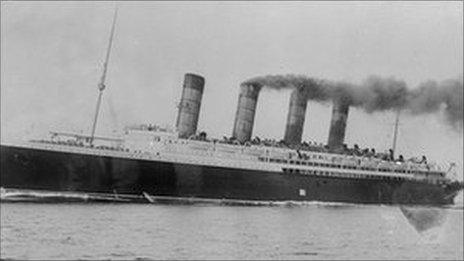The WW1 Isle of Man fishermen who were Lusitania heroes
- Published
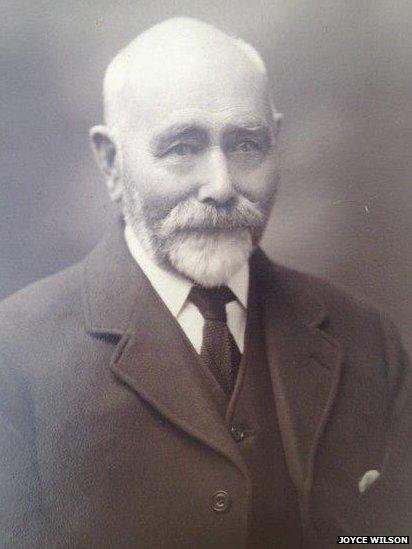
Thomas Woods was alone on deck when he saw The Lusitania sinking
On May 7, 1915, Thomas Woods, a fisherman from the Isle of Man, was alone on the deck of his boat.
He was fishing with a crew of seven near south coast of Ireland when he witnessed one of the most brutal attacks on civilians during World War One.
"We saw an awful sight on Friday," he wrote in a letter home.
"We saw the sinking of the Lusitania, and we were the only boat about at the time. I never want to see the like again. The saddest sight I ever saw in all my life. "
A single torpedo struck and the Lusitania took 18 minutes to sink. It was carrying more than 2,000 passengers from New York to Liverpool.
Mr Wood and his crew set about a rescue attempt and managed to pull about 150 people to safety.
Joyce Wilson has a framed photo of his boat - the Wanderer - in her living room. Thomas Woods was was her Grandfather.
"He saw the whole thing, he was a brave man, they all were," she said.
"The crew had to wait for two hours before any help came. If the crew had not have been so brave, all the lives would have been lost."
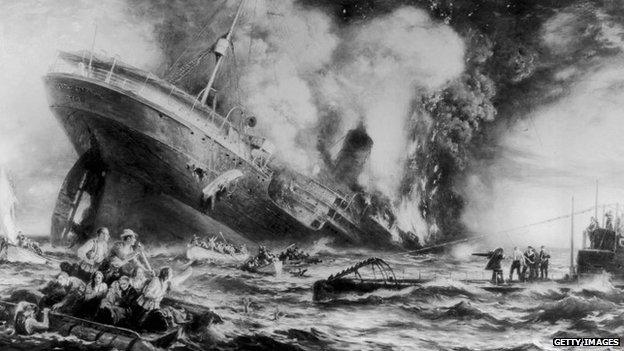
As The Lusitania sank only a few lifeboats were successfully lowered.
Another crew member, Harry Costain wrote: "There were four babies about three months old, and some of the people were almost naked just as if they had come out of bed.
"Several had legs and arms broken, and we had one dead man, but we saw hundreds in the water."
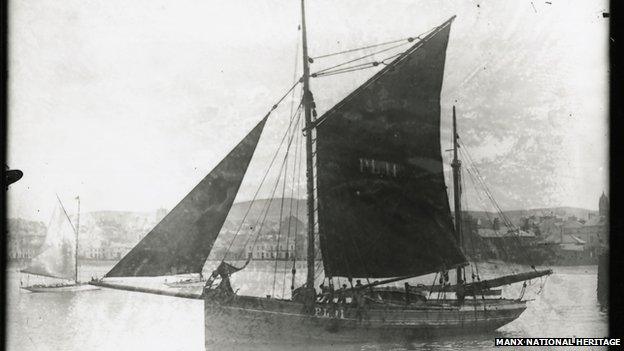
The Wanderer was a small fishing boat from Peel, Isle of Man
Other details of what happened that afternoon are to be found in letters sent from the crew to their families.
Stanley Ball wrote: "I saw her go down. She went down bow first. We had four or five children on board and a lot of women.
"I gave a pair of trousers, a waistcoat, and an oil-coat to some of them."
The WW1 Isle of Man fishermen who were Lusitania heroes
Pamela Lightfoot, 72, from Peel said her Great Grandfather, Robert Watterson rarely spoke of his involvement in the rescue.
"I was told that he saw a bundle of clothes going past The Wanderer, when he picked it up it was a two month old baby.
"The family didn't speak of it much because it was so traumatic seeing all the people screaming and fighting for their lives in the water. It must have been a terrible ordeal."
The impact the Lusitania's tragic end was huge and as thousands mourned, riots broke out spurring America to join in the war, but very little was ever mentioned of the Wanderer and the heroics of the Manx fishermen.
Roy Baker, curator at the Leece Museum says The Wanderer's involvement could have been "forgotten" had it not been for the Manchester Manx Society.
"The Manchester Manx Society organised for the men to be acknowledged for their great deed."
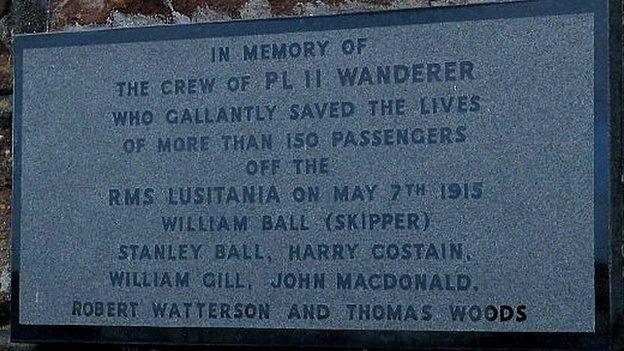
A plaque in Peel was unveiled in 2004 and is the only permanent reminder of the crew's bravery
Two of the seven medals are at the Leece Museum in Peel, Isle of Man. The town Commissioners say they are planning an event to mark the centenary of the sinking in 2015.
- Published1 May 2014
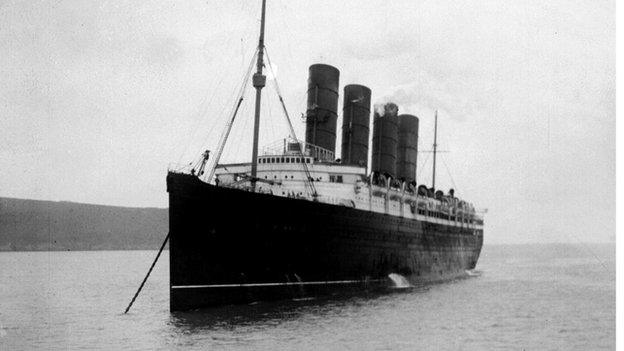
- Published7 May 2011
